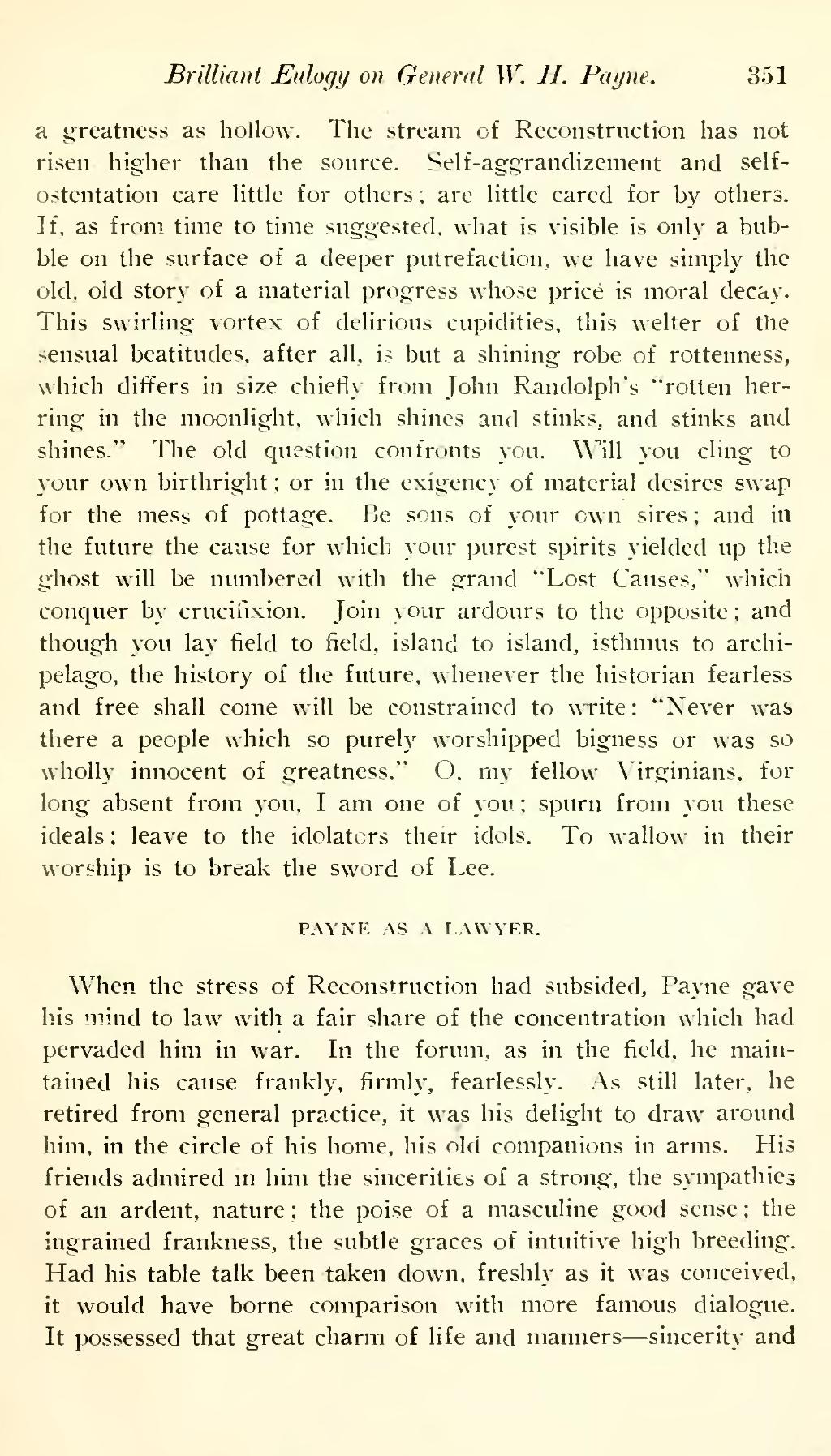a greatness as hollow. The stream of Reconstruction has not risen higher than the source. Self-aggrandizement and self-ostentation care little for others; are little cared for by others. If, as from time to time suggested, what is visible is only a bubble on the surface of a deeper putrefaction, we have simply the old, old story of a material progress whose price is moral decay. This swirling vortex of delirious cupidities, this welter of the sensual beatitudes, after all, is but a shining robe of rottenness, which differs in size chiefly from John Randolph's "rotten herring in the moonlight, which shines and stinks, and stinks and shines." The old question confronts you. Will you cling to your own birthright; or in the exigency of material desires swap for the mess of pottage. Be sons of your own sires; and in the future the cause for which your purest spirits yielded up the ghost will be numbered with the grand "Lost Causes," which conquer by crucifixion. Join your ardours to the opposite; and though you lay field to field, island to island, isthmus to archipelago, the history of the future, whenever the historian fearless and free shall come will be constrained to write: "Never was there a people which so purely worshipped bigness or was so wholly innocent of greatness." O, my fellow Virginians, for long absent from you, I am one of you; spurn from you these ideals; leave to the idolaters their idols. To wallow in their worship is to break the sword of Lee.
PAYNE AS A LAWYER.
When the stress of Reconstruction had subsided, Payne gave his mind to law with a fair share of the concentration which had pervaded him in war. In the forum, as in the field, he maintained his cause frankly, firmly, fearlessly. As still later, he retired from general practice, it was his delight to draw around him, in the circle of his home, his old companions in arms. His friends admired in him the sincerities of a strong, the sympathies of an ardent, nature; the poise of a masculine good sense; the ingrained frankness, the subtle graces of intuitive high breeding. Had his table talk been taken down, freshly as it was conceived, it would have borne comparison with more famous dialogue. It possessed that great charm of life and manners—sincerity and
